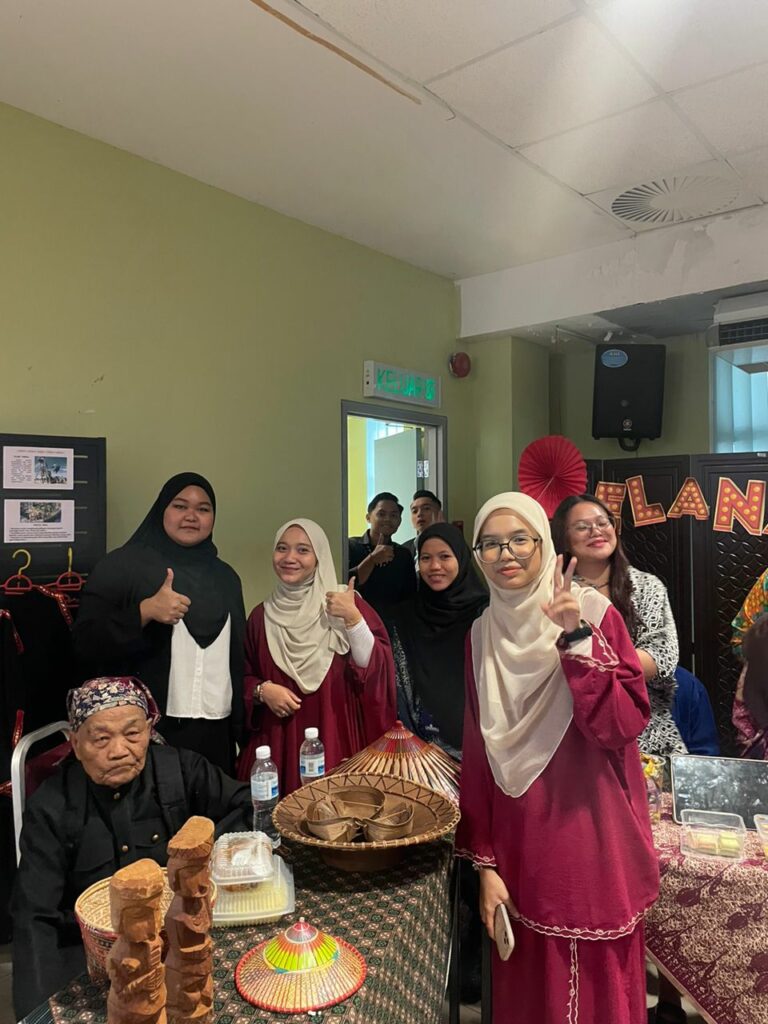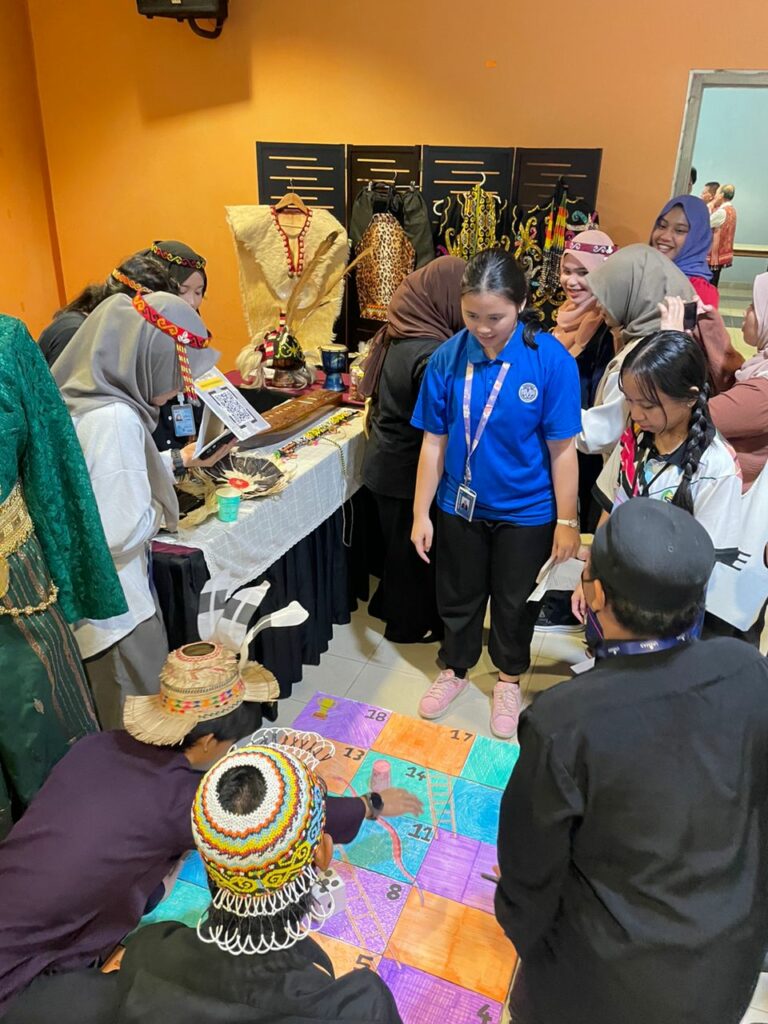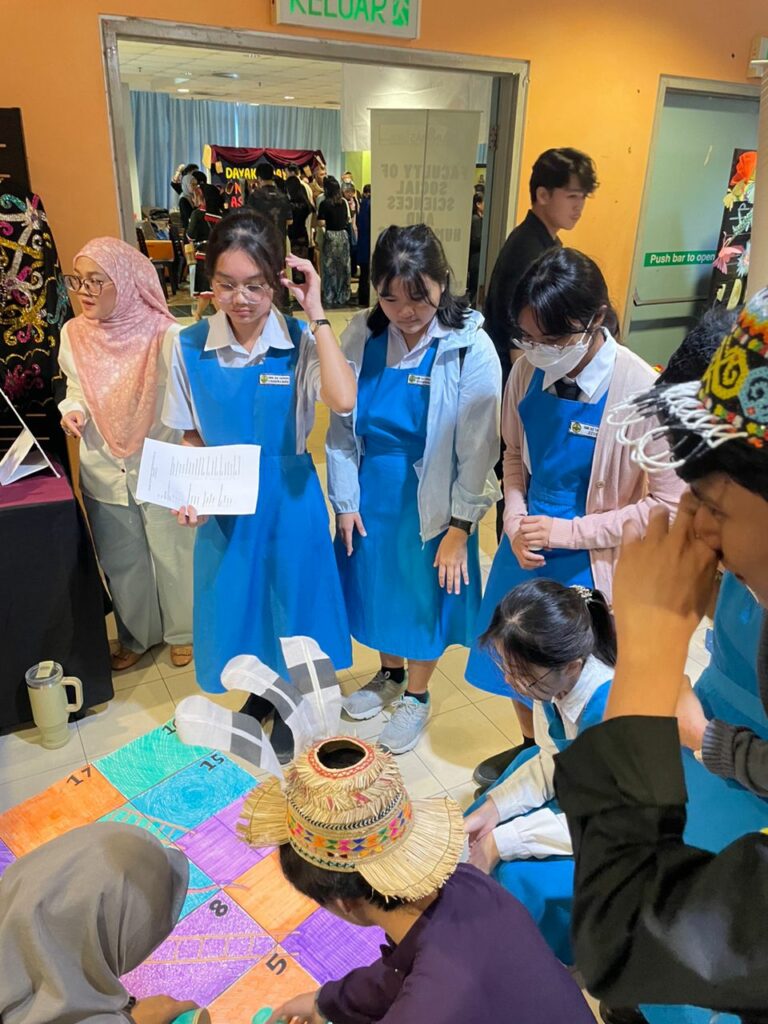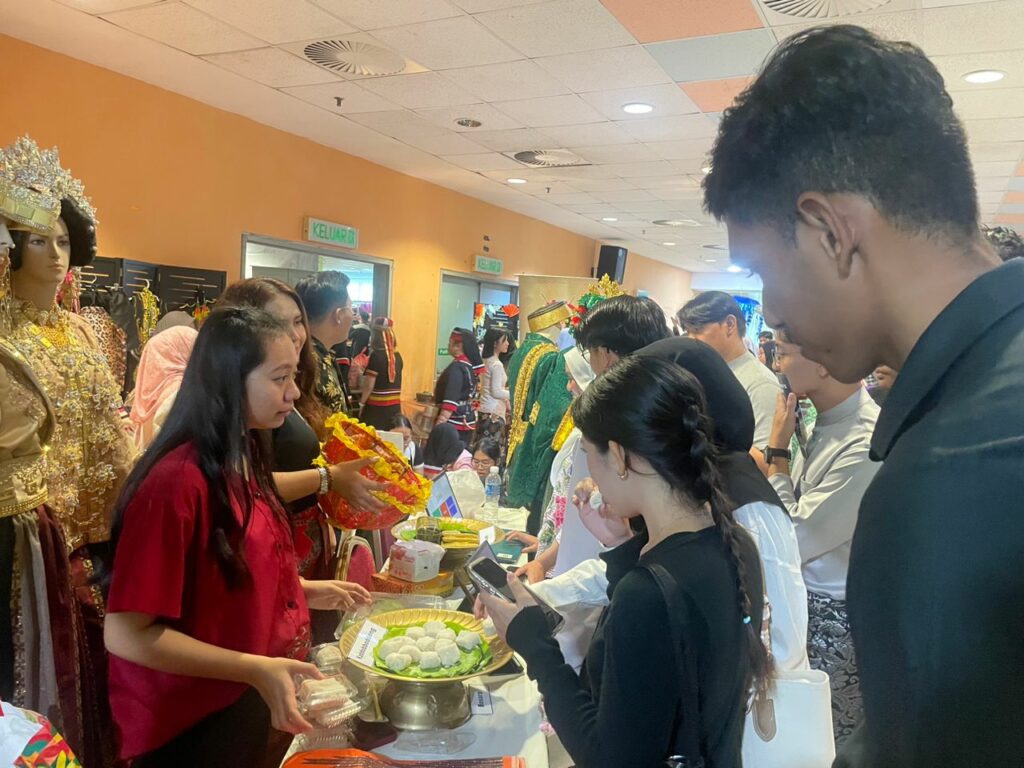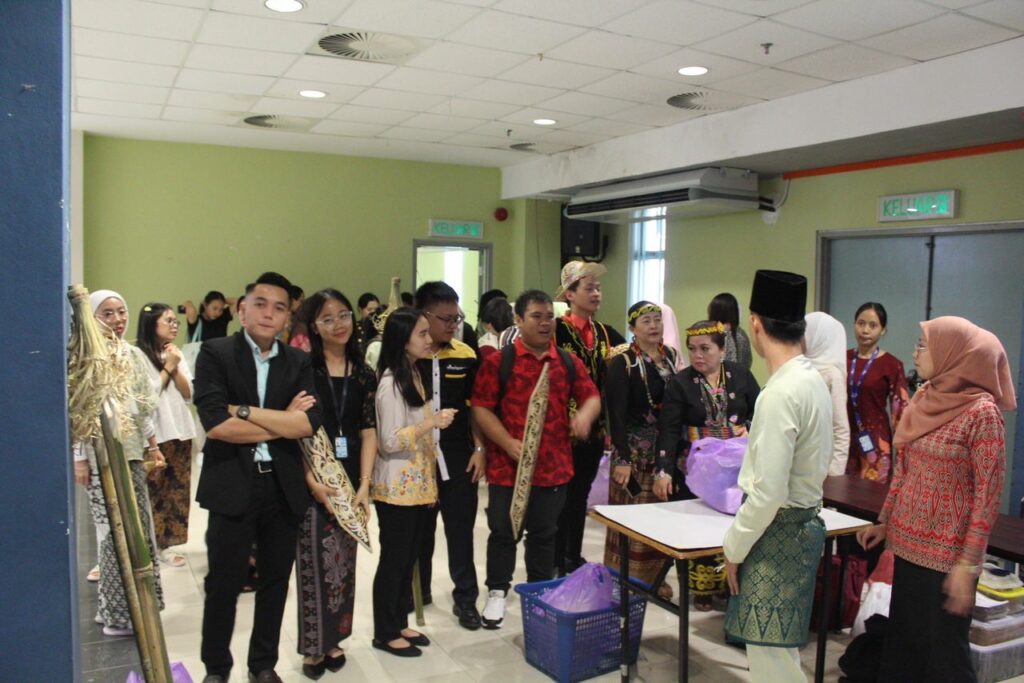Written by Dr Nur Auni Ugong
Last November, the Faculty of Social Sciences and Humanities (FSSH) has successfully organised the Borneo’s Culture & Ethnicity Showcase, as a part of the Service-Learning Malaysia—University for Society (SULAM) initiative for SSY2023: Culture and Ethnicity in Borneo course. This course, and the event, was supervised by Dr Nur Auni Ugong on 22 November 2024. This event served as a key platform to promote the rich cultural heritage of Borneo’s diverse ethnic groups while strengthening the dynamic relationships between academia and the community. Widely supported by various stakeholders, the program significantly contributed to the preservation and elevation of local cultural heritage.
This initiative incorporated a service-learning approach, allowing students to participate in structured community service activities designed to address identified societal needs. The program not only benefited the community but also allowed students to reflect on their experiences and connect them to course learning outcomes. This process deepened their understanding of academic content, enhanced personal values, and improved civic responsibility. Moreover, the program fostered a collaborative environment between students, lecturers, and communities, further supporting the university’s mission of contributing to society through its expertise.
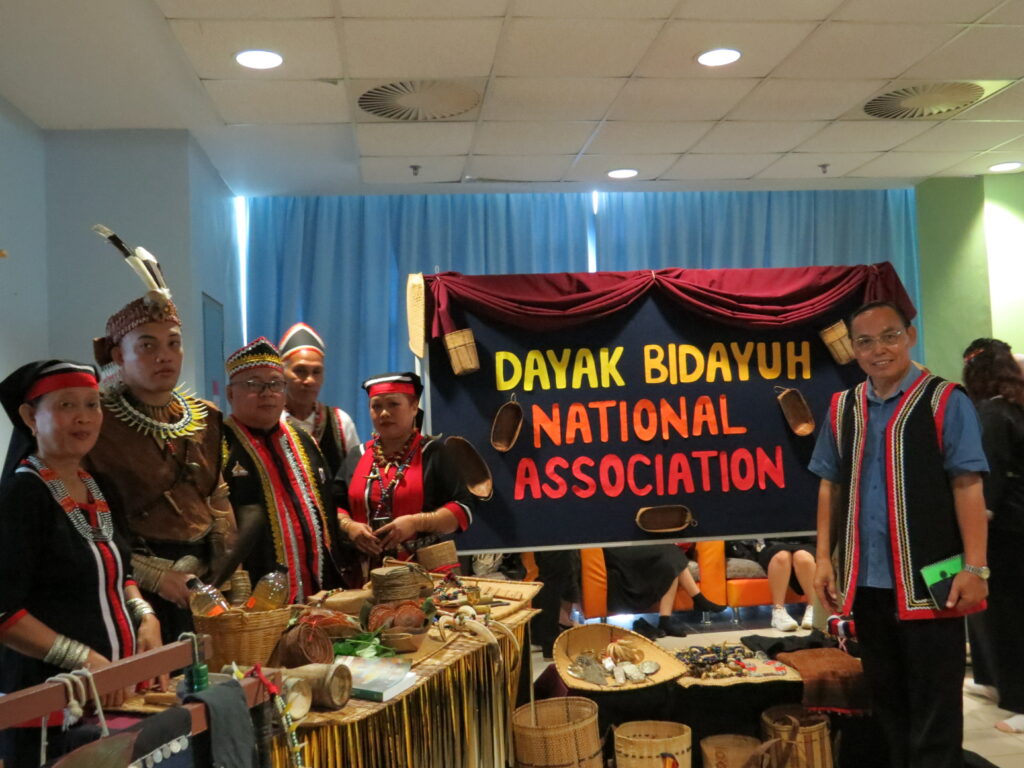

The 2024 showcase has successfully partnered with 12 cultural associations in Sarawak, including the Dayak Bidayuh Nasional Association, Gendang Warisan Wawasan Budaya, Kadazan Dusun Cultural Association, Persatuan Melanau Kuching, Persatuan Kayan Sarawak, Sarakup Indu Dayak Sarawak, Indian Association Kuching, Sarawak Dayak Iban Association, Association of Research and Development Movement of Singai Sarawak, Amanah Khairat Yayasan Budaya Melayu Sarawak, Pertubuhan Komuniti Warisan dan Kebudayaan Bugis Daerah Sadong Jaya, and Persatuan Komuniti Etnik Kajang Sarawak. Through these collaborations, various captivating activities were organized to highlight the richness of local cultures.
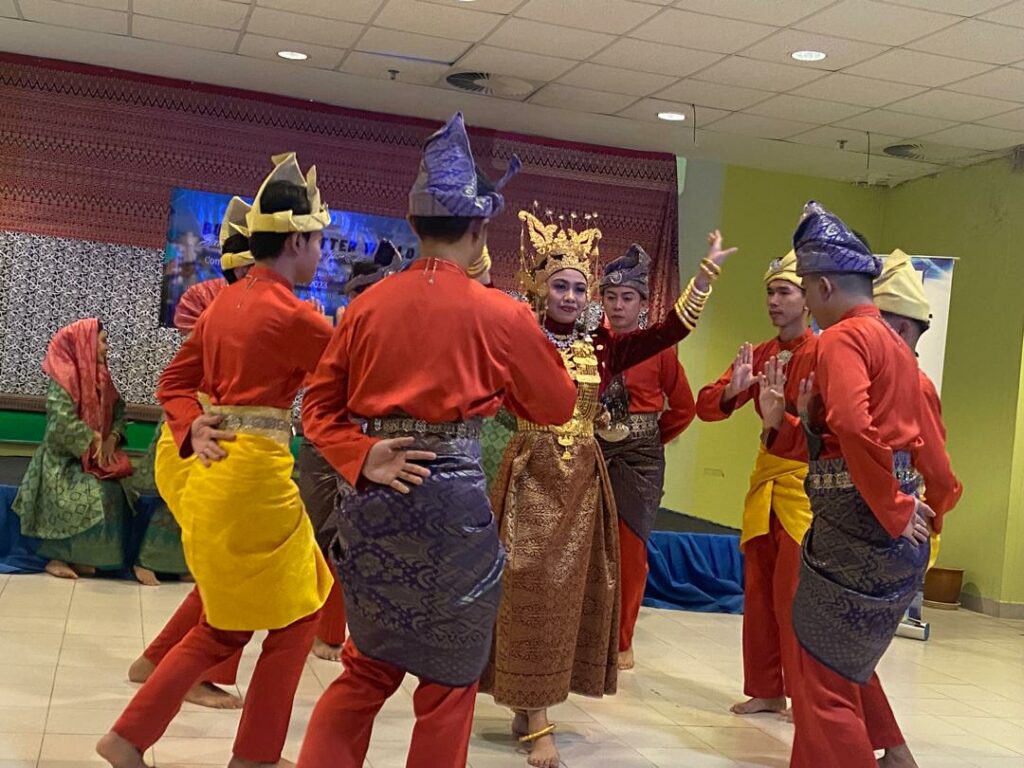
The program began with a traditional Malay cultural arts performance by the Persatuan Budaya Melayu Sarawak, which mesmerized the audience. Following this was a dialogue session by Datuk Peter Nansian Ngusie, President of REDEEMS, who spoke on the topic “The Role of REDEEMS in Preserving Cultural Heritage.” He highlighted the pivotal role that associations like REDEEMS play in safeguarding the cultural heritage of the Dayak Bidayuh community. Other standout performances included the Kesut Dance by the Persatuan Kesenian dan Kebudayaan Etnik Sarawak (PKEKS) and a session titled “Exploring Melanau Heritage” by Robinson Junang, Honorary Secretary of the Melanau Association of Kuching.
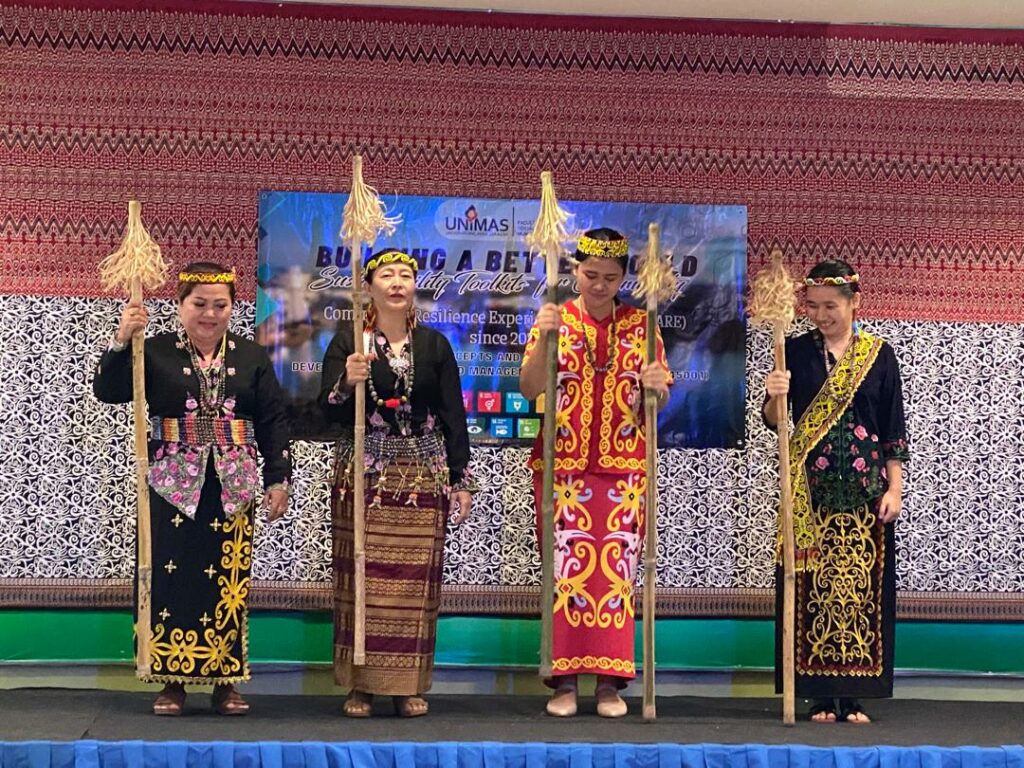
Another highlight was the performance of the Bugis Traditional Dance, accompanied by a dialogue session titled “Unduk Ngadau: Timeless Traditions of Sabah & the Charm of Sugandoi”, delivered by Petronella Walefred, Chief Coordinator of Unduk Ngadau KDCA Sarawak, and Khai Puma Jamal, a Sugandoi KDCA Sarawak Committee Member. This session showcased the unique Kadazan-Dusun traditions, including the melodic beauty of the Sugandoi art form.
In another session, Ahtmanathan Vengidasalam, President of the Indian Association Kuching, shared insights on “The Journey of Indian Culture in Borneo”, offering a unique perspective on the integration of Indian heritage within Borneo’s cultural landscape. Other highlights included a performance of “Kumang Bajik Tampun Puji” by Sarakup Indu Dayak Sarawak (SIDS) and the Gendang Pampat Peruji Ati, a showcase of traditional Dayak musical arts. The event also featured cultural knowledge-sharing sessions, art and cultural exhibitions, traditional games, interactive quizzes, and craft-making demonstrations, adding further appeal to the program.
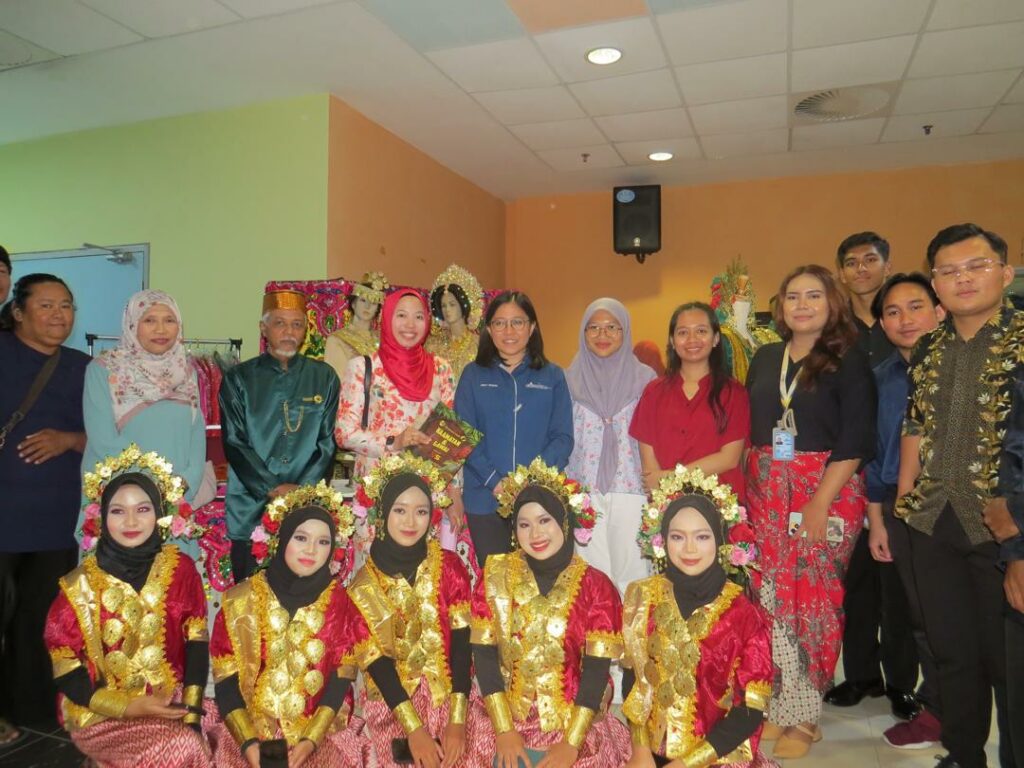
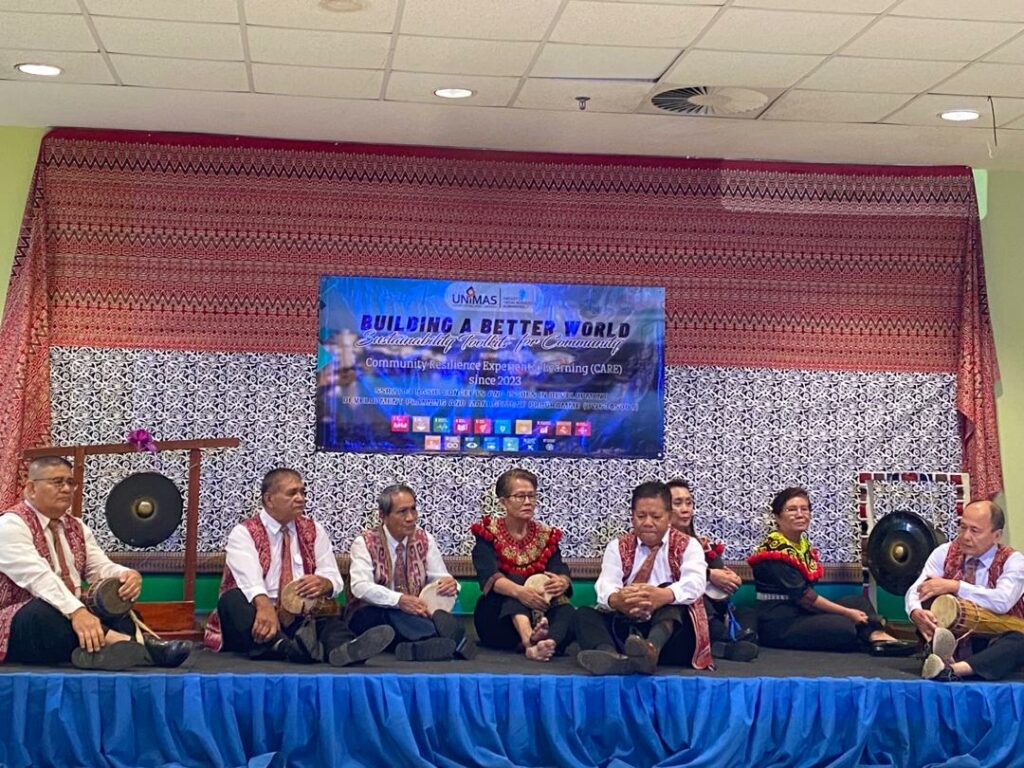
The program’s uniqueness lies in its role as a medium for knowledge transfer and the establishment of strong collaborative networks between the university and the community. Through the SULAM approach, students gained practical learning experiences while enriching their understanding of cultural diversity and developing critical interpersonal skills. Borneo’s Culture & Ethnicity Showcase 2024 demonstrated how education can serve as a catalyst for cultural preservation. It stands as a prime example of how academic and community collaborations can ensure that cultural heritage remains relevant, appreciated, and passed on to future generations.
